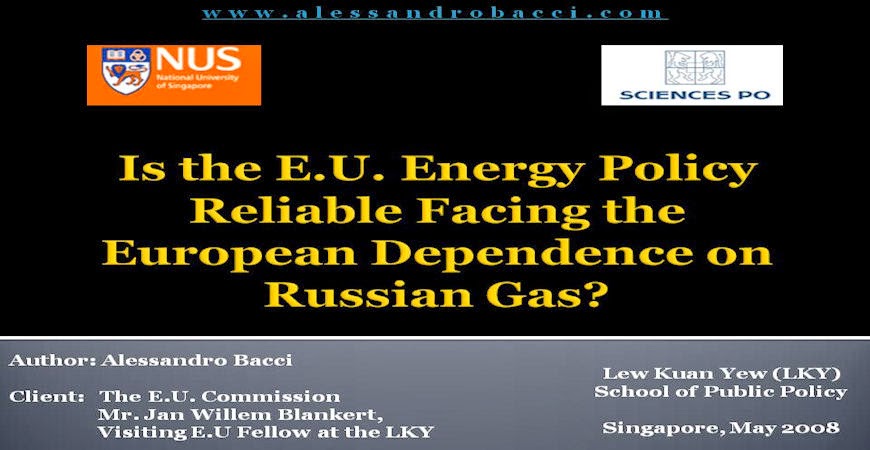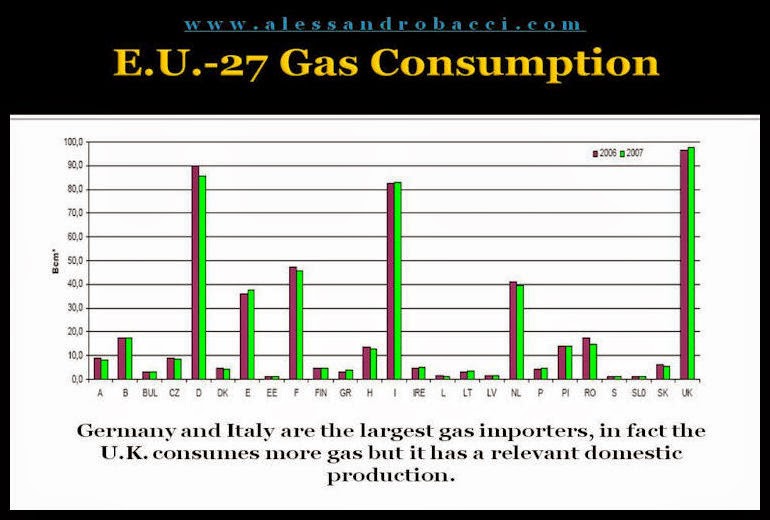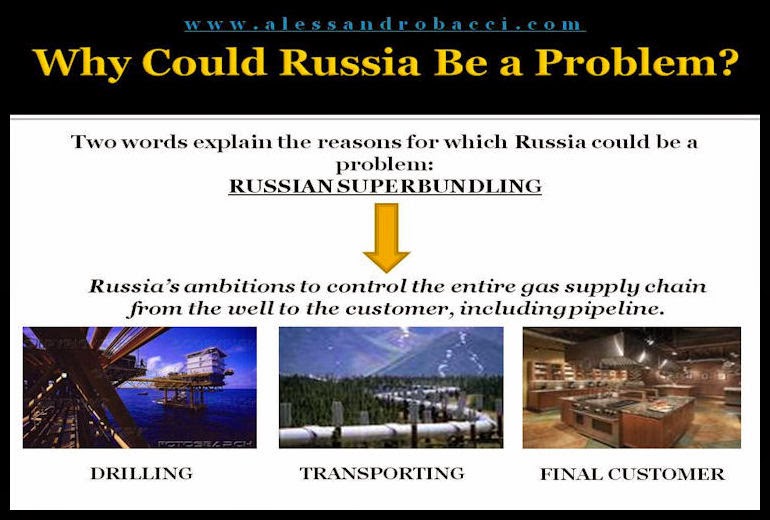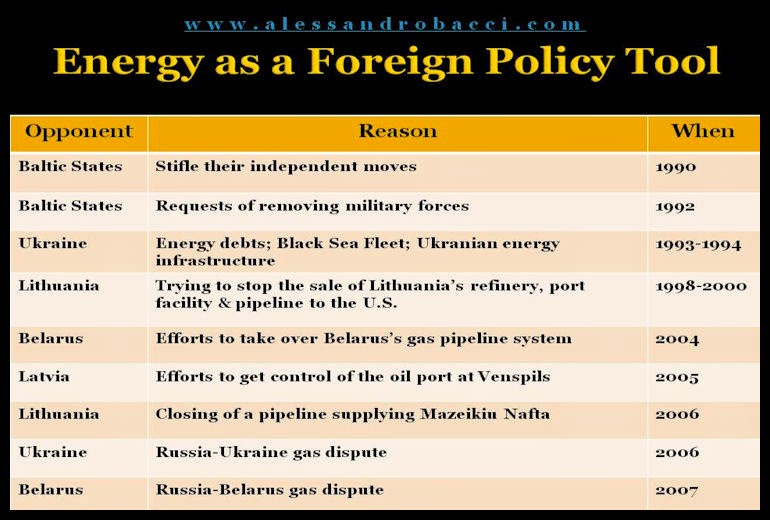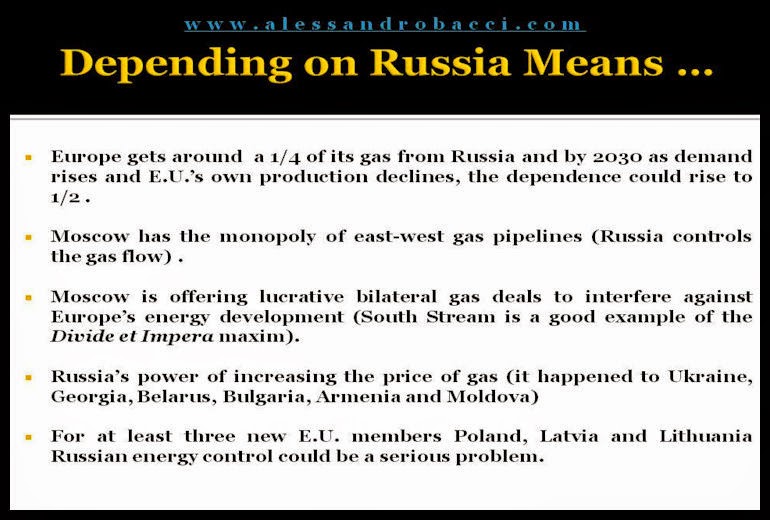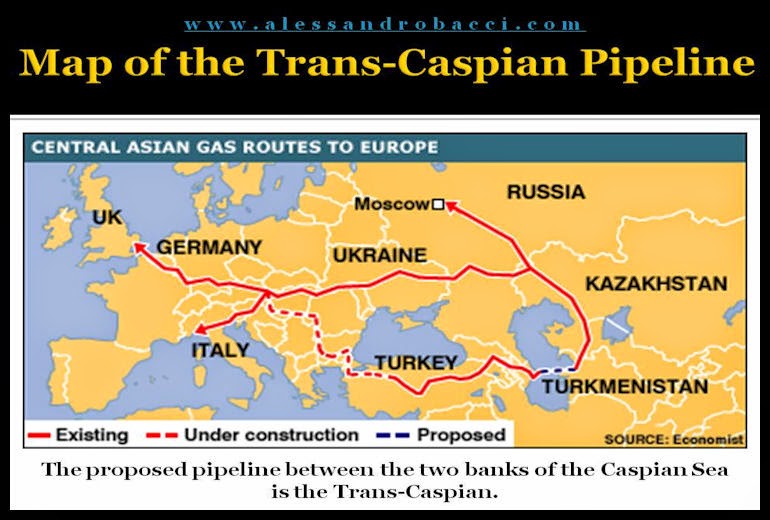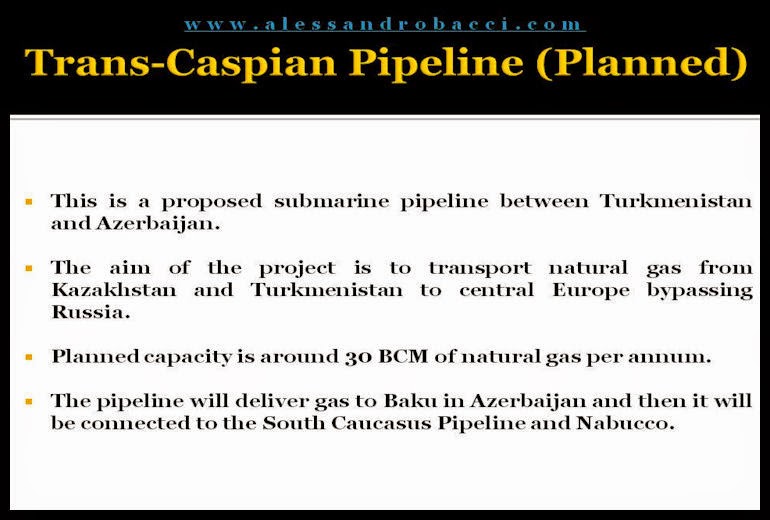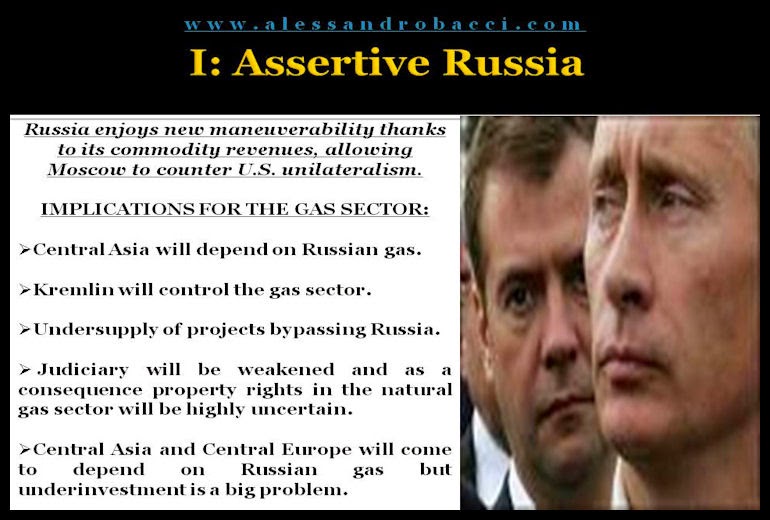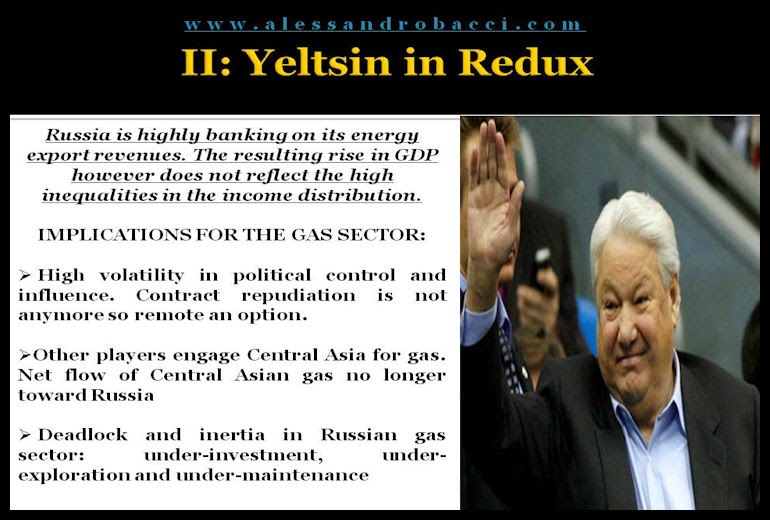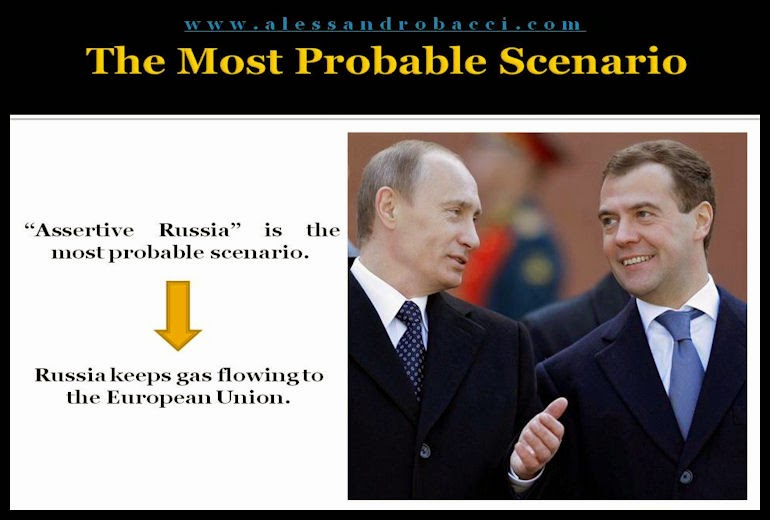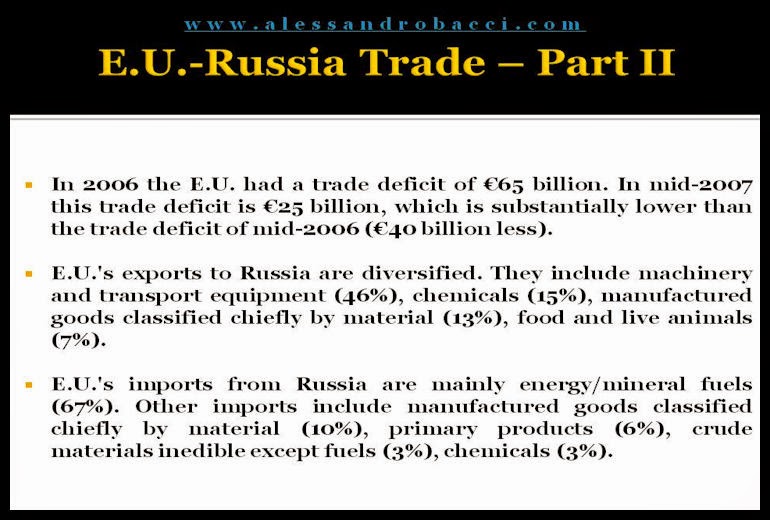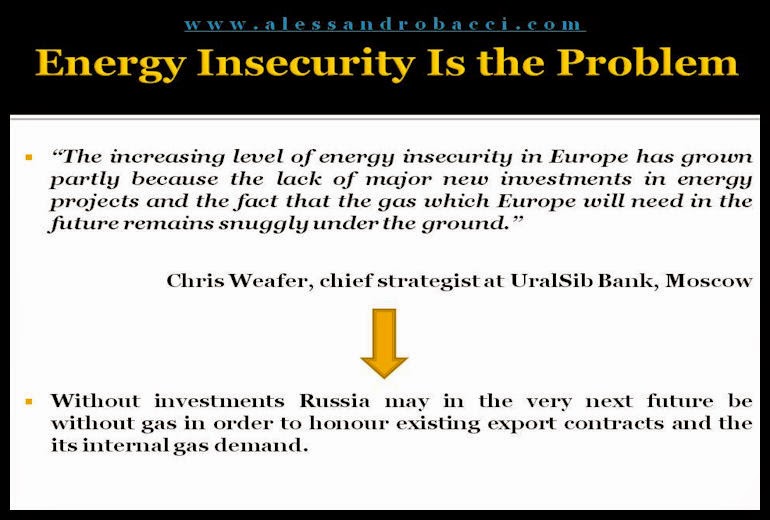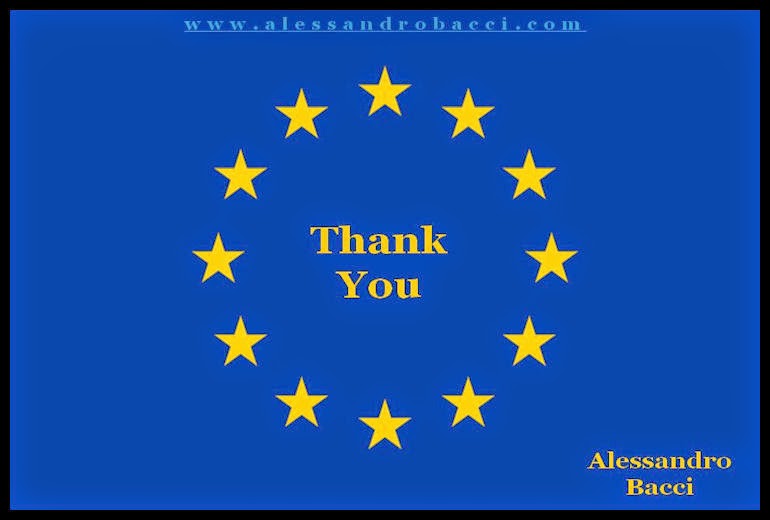May 2008
SINGAPORE — This PowerPoint analyzes the energy relations between the European Union (E.U.) and Russia. In specific, it aims to understand what policy the E.U. Commission could implement in order to deal with the E.U. dependence on Russian natural gas.
According to the latest figures the E.U. depends for around
25 percent of its gas requirements on Russia. And if the E.U. does not try to
change this trend, in the following years it will really risk depending even
more on Russia for its gas necessities. On the one hand, it is true that Europe
has depended on Russian gas for at least the last four decades and that this
relationship was never interrupted also during the worst frictions of the Cold
War era. In other words, although some fears and panic subsequent to some
specific events — like the Russia-Ukraine dispute between year-end 2005
and beginning 2006 — the Soviet Union
first, or Russia after 1991, has always been a reliable partner for the European
gas necessities. But, in the future this policy may indeed result in at least important
high costs while, in the eventuality of Russian failure to honoring its gas
commitments towards the E.U., it could engender a real slowdown of the E.U.
economic growth. On the other hand, it is also true that the economic exchange
between Russian gas and European assets is billions of euro's worth and this
economic relation is positive for both the E.U. and Russia.
In light of this condition, the policy recommendations of
this document all point toward the E.U. goal of minimizing risks in relations to Russian
gas imports.
This PowerPoint is the additional document to the final
thesis I wrote and discussed at the Lee Kuan Yew School of Public Policy of the
National University of Singapore where I completed a master's degree in public
policy (M.P.P.) in 2008. The title of the thesis was: "Is the E.U. Energy Policy Reliable Facing the European Dependence on Russian Gas?"

